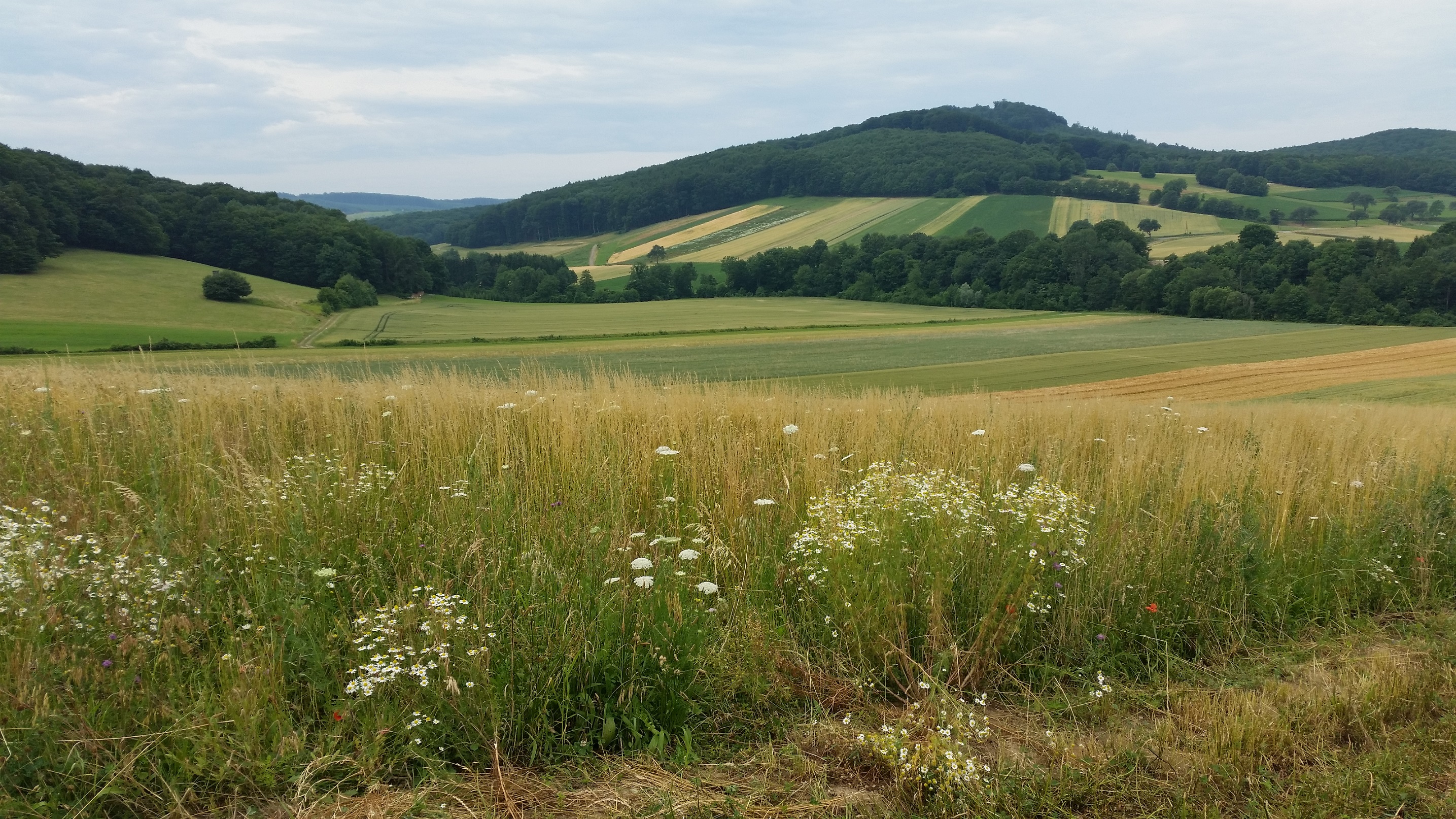New project to circulate the success of Farmer Cluster approach across Europe
New project sees farmers in 9 countries working together to enhance biodiversity across the landscape
A five-year project in which farmers will work together to enhance biodiversity across the landscape has been launched this month in nine European countries. In the FRAMEwork*
project farmers will work together, alongside scientists and engineers, to increase knowledge and to find solutions to problems of managing biodiversity. They will also work with citizens, retailers, processors, government policy makers and others, to ensure that biodiversity sensitive farming is valued, and fair incentives are offered to drive adoption.
Using the farmer cluster model, which has been successful in the UK and elsewhere, the FRAMEwork project aims to develop solutions and approaches that will embed the benefits of managing the land for biodiversity into farming practices and policy, while limiting the economic risk to farming businesses. This prototype project will be based around Advanced Farmer Clusters, which will see local farmers work collectively on landscape scale management, supported by a Cluster Facilitator with expertise in agriculture and the environment. The project will also focus on monitoring, allowing participating farmers and scientists to understand what works, adjust what does not and achieve greater successes in the long run.
Professor John Holland of the Game & Wildlife Conservation Trust (GWCT) is leading the development of an Advanced Farmer Cluster Network, which is at the heart of the project. “Groups of farmers will work together to build effective management plans across a local area with shared environmental aims, such as conserving certain species, improving local water quality or preserving unique landscapes” says John. “We will be evaluating 11 new and very diverse farmer clusters over five years. The approach will be different at each site, adjusted to the needs of the area and the aims of the farmer groups, but support is available from scientists and advisors, with financial backing coming through government Agri-Environment Schemes and other funds.”
Research has shown that healthy biodiversity is essential for sustainable agriculture and long-term food security. In recent decades management for short-term economic returns has taken priority in commercial farming over management for the environment. Current mechanisms for encouraging farmers to farm with biodiversity in mind are often inefficient and generic. Monitoring has also been sporadic and not standardised across, or even within, different countries.
The FRAMEwork project takes the concept of what can be achieved by farmer clusters and applies it across Europe, providing a new level of technological support in planning, managing and monitoring the groups to help farmers reach their goals. There will be a focus on citizen and farmer-based biodiversity monitoring, supported by more detailed scientific monitoring.
Through knowledge sharing, both between farmers and research staff, across participating countries, the aim is to better appreciate not only the ecological impacts of sustainable agriculture, but also the social and economic factors. It is hoped that the project will improve understanding of the relationship between biodiversity and agriculture across the EU and inform the design of new incentives for farmland biodiversity gains, rewarding farmers for providing public goods alongside productive farmland. The FRAMEwork project’s long-term ambition is to prototype this system, learning from both its development and its testing, and see it rolled out across Europe in the years following the project.
More information on the FRAMEwork project is available at https://www.framework-biodiversity.eu/
This project received funding from the European Union’s Horizon 2020 research and innovation programme under grant agreement No 822314
Notes to editors
*FRAMEwork: Farmer clusters for Realising Agrobiodiversity Management across Ecosystems.
https://www.framework-biodiversity.eu/
The project is funded by EU Horizon 2020 Programme with a total project budget of €8 million. 18 partners are involved across 9 EU countries. The FRAMEwork team comprises scientists (agronomists, ecologists, economists, social scientists), farmers, policy makers, conservationists, and businesspeople.
The Game & Wildlife Conservation Trust – providing research-led conservation for a thriving countryside. The GWCT is an independent wildlife conservation charity which has carried out scientific research into Britain’s game and wildlife since the 1930s. We advise farmers and landowners on improving wildlife habitats. We employ 22 post-doctoral scientists and 50 other research staff with expertise in areas such as birds, insects, mammals, farming, fish and statistics. We undertake our own research as well as projects funded by contract and grant-aid from Government and private bodies. The Trust is also responsible for several Government Biodiversity Action Plan species and is lead partner for grey partridge and joint lead partner for brown hare and black grouse.
ISDN radio broadcast line - at our Fordingbridge HQ we have an ISDN radio broadcast line, allowing us to conduct interviews remotely.
Press release distributed by Pressat on behalf of Game & Wildlife Conservation Trust, on Tuesday 10 November, 2020. For more information subscribe and follow https://pressat.co.uk/
Conservation Conservationists Farming Farmers Wildlife Rural Countryside EU Europe Environment & Nature Farming & Animals Government
You just read:
New project to circulate the success of Farmer Cluster approach across Europe
News from this source:



